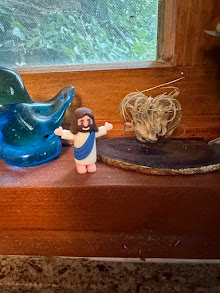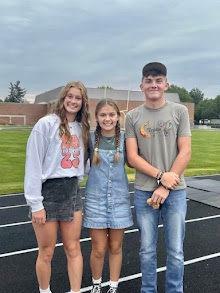It was right there on the label.
"Gluten-Free"
Because we have several family members who have celiac disease, I was thrilled to discover another cereal from a mainstream manufacturer to add to the various Chex rice and corn cereals. Even a full spectrum of Chex flavors like vanilla, cinnamon, and chocolate leaves one longing for variety. I thought I was getting ready to provide a real treat, a breakthrough in breakfast. While I tend to cast a jaundiced eye on the eating public's current infatuation with all things gluten free, it's an ill wind that blows no good. This latest fad makes it easier to find foods labeled gluten free without reading through all the fine print. One need not hunt up a specialty health food store to find certain foods. Cooking and shopping for a person with celiac is both more convenient and less risky.
Except for when it isn't.
Turns out that the oats in these new products meet these requirements:
"FDA labeling rules allow the use of oats as long as the finished food contains less than 20 parts per million of gluten, the standard applied to any gluten-free product."
"Prior to approval of the FDA’s labeling laws, only specialty gluten-free oats grown and processed in a precise way to prevent cross-contamination were permitted in foods labeled gluten free.
Due to the scarcity and higher cost of these specialty gluten-free oats, food manufacturers making gluten-free products are utilizing mechanical and optical sorting processes to separate stray wheat and barley from the oats prior to manufacturing. This includes General Mills’ Cheerios and Quaker’s gluten-free oatmeal."
Ok. So here's my interpretation of these developments. First of all, there are and have been actual gluten free oats for oatmeal and baking that will not make a celiac sick. I have some in my freezer right now. But, you don't have to read between the lines to figure out that oats produced in an uncontaminated environment are too expensive to attract moms who believe going "gluten free" is somehow better for their family's diet but will never know whether "gluten free" means 21 ppm or 200 ppm because their health does not depend on it.
(I get a kick out of the use of the term "scarcity". Clearly, clean facilities currently exist to process oats to ensure they are free from barley and wheat, the main gluten culprits. Are they running three shifts? Are they bidding up the price of oats in their area? If they are, then there may be a temporary shortage of oats while the market adjusts to the increased demand. But if General Mills and Post don't think the families of America will pay more for truly gluten free oats, then yes, I reckon there will continue to be scarcity. Thus has it ever been.)
My excitement over the new gluten free additions to breakfast was short lived. Turns out the FDA label requirements for defining gluten free are insufficiently rigorous: a sensitive celiac will get sick from eating the new Honey Bunches of Oats or Quaker Oats. The label Gluten Free isn't worth the cardboard box it is printed on. A food label is intended to provide useful and helpful information.
Until it doesn't.
But the GLUTEN FREE label so carelessly plastered on the boxes of cereal does make people sick...it does make a mockery of the food safety and information imperative that labeling implies. If a food label cannot be trusted, if it only exists as another marketing tool to differentiate one similar product from another, if the label doesn't keep people healthy, then what's the point?
NUT FREE should mean no nuts...safe for people allergic to nuts.
And GLUTEN FREE should mean no gluten...safe for celiacs...not just a way to participate in the latest food fight.
THAT would be truth in labeling.


















No comments:
Post a Comment